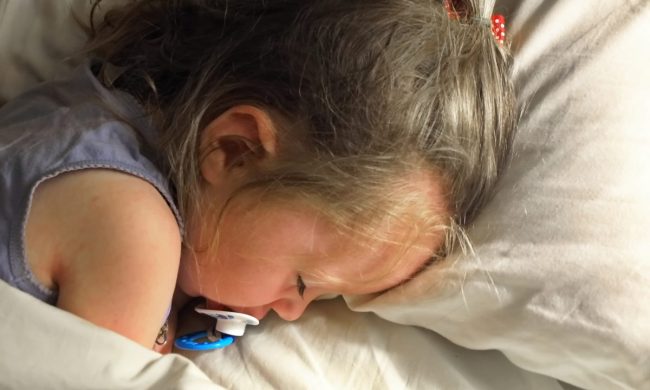Life for a postpartum mother is one of the most difficult stages that she will likely experience when it comes to parenting. The endless and sleepless nights, wondering if you or your baby will ever rest again, or the constant tears as you both try to figure things out in the days and weeks after her glorious birth is tiring, to say the least. The last thing on a new mom’s mind is the care for themselves, especially when dealing with an overly cranky or colic-plagued newborn. With that said, being aware of one’s body after giving birth to another is vital.
Newborns look to their mothers for all their needs, which requires moms to be at the top of their game. If you have been feeling symptoms that you think could be some sort of thyroid issue and have also recently given birth, you should know the signs and symptoms of postpartum thyroiditis. But what exactly is this condition, and how is postpartum thyroiditis diagnosed?

What is postpartum thyroiditis?
According to the Mayo Clinic, “postpartum thyroiditis happens when a woman’s thyroid gland becomes inflamed after having a baby. This condition affects a small percentage of pregnant women or about 3 in 100 to 2 in 25.” Postpartum thyroiditis, also referred to as PT – is an unexplained condition that can affect new moms. There is currently no known cause of PT, though it does seem to affect mothers who carried antithyroid antibodies prior to becoming pregnant more predominantly.
Additionally, PT can cause both hyper, and hypothyroidism. The Mayo Clinic goes on to explain, “When the thyroid becomes inflamed, it first sends a lot of thyroid hormone into your blood. That causes hyperthyroidism. During this time, you may not have any symptoms. Or any symptoms you do have may be mild and not last long… After this first phase, you may fully recover. Or your thyroid may be damaged. A damaged thyroid can become underactive. This condition may also go away. Or you may have an underactive thyroid for the rest of your life. In this case, you may need hormone replacement.”
Each person will experience their symptoms differently.
What are the symptoms of PT?
The symptoms of PT can vary, depending on what stage the new mom is currently in, and whether they are experiencing hyperthyroidism or hypothyroidism.
The symptoms of hyperthyroidism (overactive thyroid) are:
-
- Hot flashes
- Muscle fatigue
- Mental fogginess
- Anxiety or nervousness
- Accelerated heart rate
The symptoms of hypothyroidism (underactive thyroid) are:
-
- Feeling cold at all times
- All over fatigue
- Muscle cramping
- Increased weight
- Constipation
- Loss of memory

How is postpartum thyroiditis diagnosed?
If you’ve been wondering how doctors and medical staff go about diagnosing PT and beginning the treatment for the condition, we’re happy to say that doing so requires nothing more than a simple blood test. Blood work is drawn, tested, and the results are read and sent to your physician for a full diagnosis.
What treatment options are available for new moms dealing with postpartum thyroiditis?
The treatment options for PT vary greatly and depend on the type – hyper or hypothyroidism – and the severity that is affecting the new mom. For severe symptoms of an overactive thyroid include prescription beta-blockers, Prednisone, or a combination of both. To combat symptoms of an underactive thyroid, doctors will often prescribe a thyroid replacement medication such as Synthroid.
For fresh and new moms out there who may be feeling overly tired, backed up, or crampy in the legs, now may be the time to talk with your doctor about these new, prolonged, or worsening symptoms. Your baby depends on you to be there for them in these first critical months while you establish your boundaries and build your bonds for the years that are to come.
- Schedule an appointment
- Research and write down specific questions.
- Take a friend or family member with you to your appointment to be a voice for you as well as a key listener to essential information your doctor will give you.
- Write down the information you feel is important that you may forget later or ask your doctor for materials explaining your diagnosis and treatment plan.
The bottom line
You owe it to yourself and your child to take care of your health in order to provide them the best care and environment to develop that you can. This requires you to be in the best health that you can be, and you need to be sure you aren’t ignoring your own needs while caring for everyone else. If you think something might be wrong, it’s absolutely paramount that you consult your doctor for help. Not only will you be doing yourself a favor, but you’ll be better able to care for your new bundle of joy as well.



